- Home
- Investigations
- Charles Nader

Charles Nader
Threat Alert- Investigation status
- Ongoing
We are investigating Charles Nader for allegedly attempting to conceal critical reviews and adverse news from Google by improperly submitting copyright takedown notices. This includes potential violations such as impersonation, fraud, and perjury.
- Alias
-
Diamondhands
- Company
-
doc.com
- Phone
-
+18603687357
- City
-
Beverly Hills
- Country
-
USA
- Allegations
-
Securities Fraud
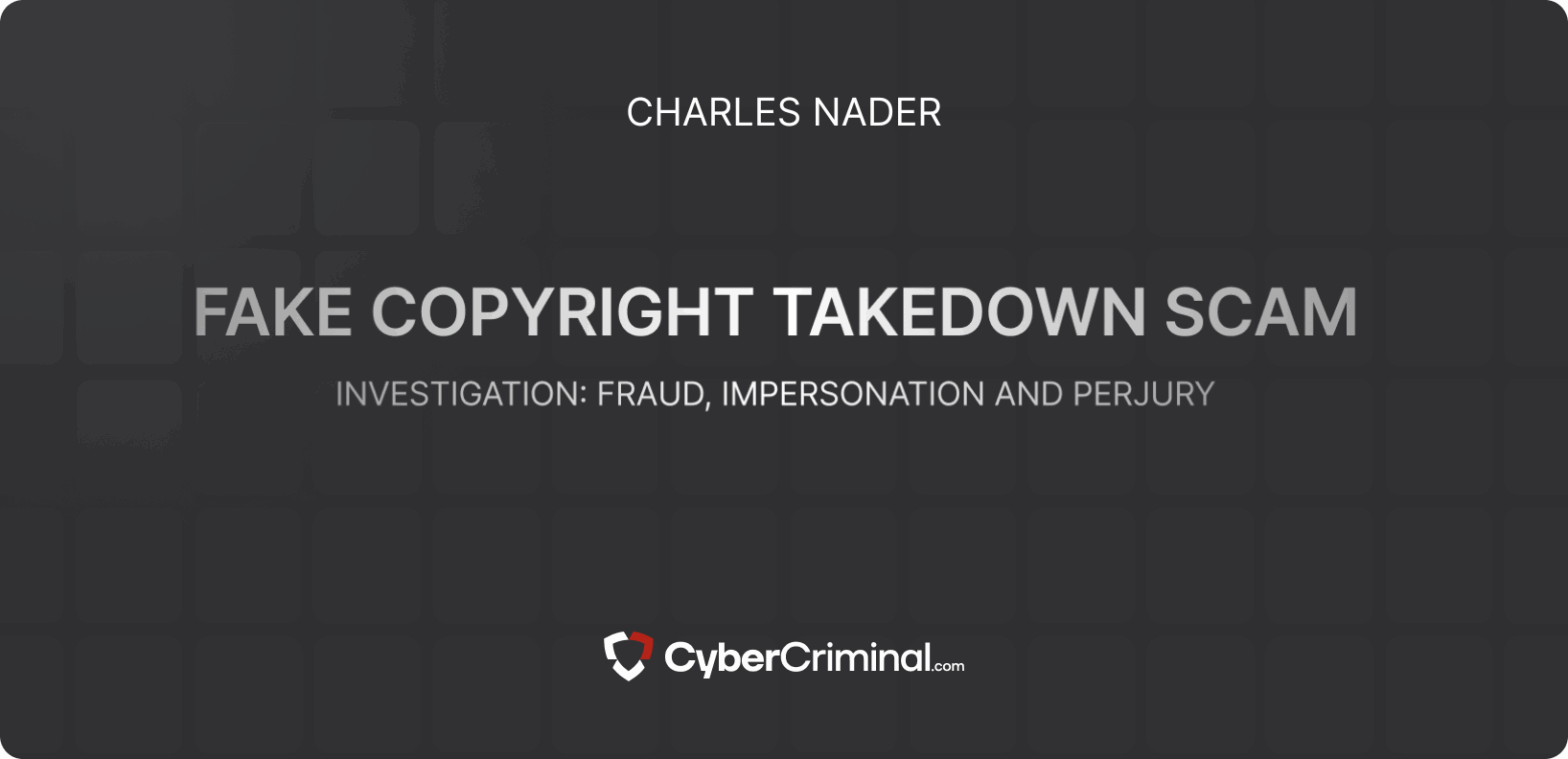
- https://lumendatabase.org/notices/50444804
- https://lumendatabase.org/notices/50184037
- https://lumendatabase.org/notices/50444687
- https://lumendatabase.org/notices/50101569
- https://lumendatabase.org/notices/53095028
- https://lumendatabase.org/notices/53188341
- March 30, 2025
- March 30, 2025
- March 19, 2025
- June 14, 2025
- June 09, 2025
- Jonn Elton
- [REDACTED]
- Jonn Elton
- Ruth Media Association
- Chola llc
- Chola llc
- https://www.gettyimages.com/detail/news-photo/customer-leaves-noah-foods-december-28-2012-in-chicago-news-photo/[REDACTED]
- https://sydneychronicle.com/2019/01/19/from-mar-a-lago-to-coinbase-dubious-claims-follow-doc-com-token-sales/
- https://www.stltoday.com/news/local/illinois/two-st-louis-men-accused-of-2012-drug-robbery-murder/article_196b1be9-08c8-5626-b2af-52a6ed8e57e8.html
- https://www.denverpost.com/2012/12/07/woman-found-guilty-for-role-in-2010-aurora-slayings/
- https://www.itv.com/news/westcountry/2012-06-27/two-men-on-trial-for-fatal-shooting-at-bristol-carnival
- https://www.coindesk.com/markets/2019/01/29/from-mar-a-lago-to-coinbase-dubious-claims-follow-doccom-token-sales
Evidence Box and Screenshots
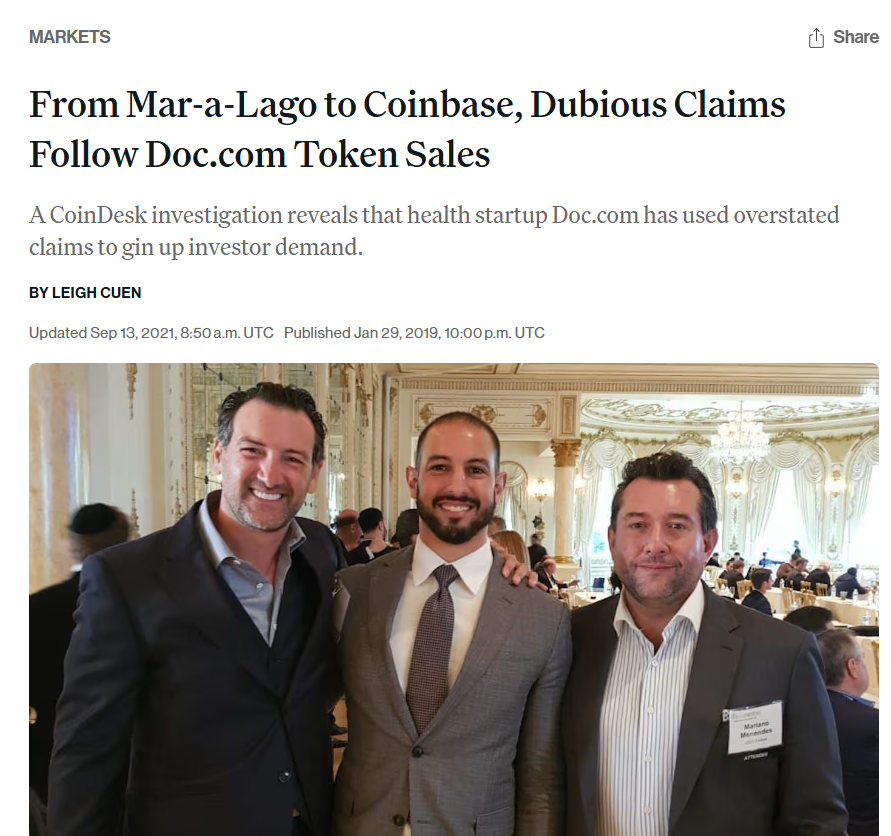
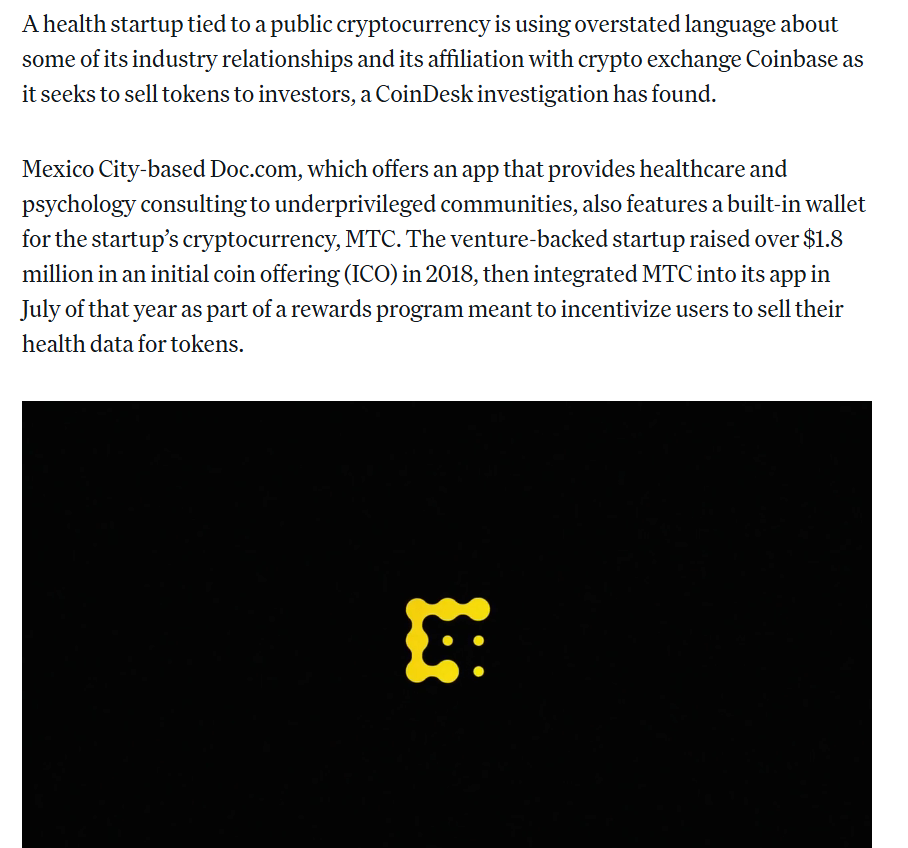
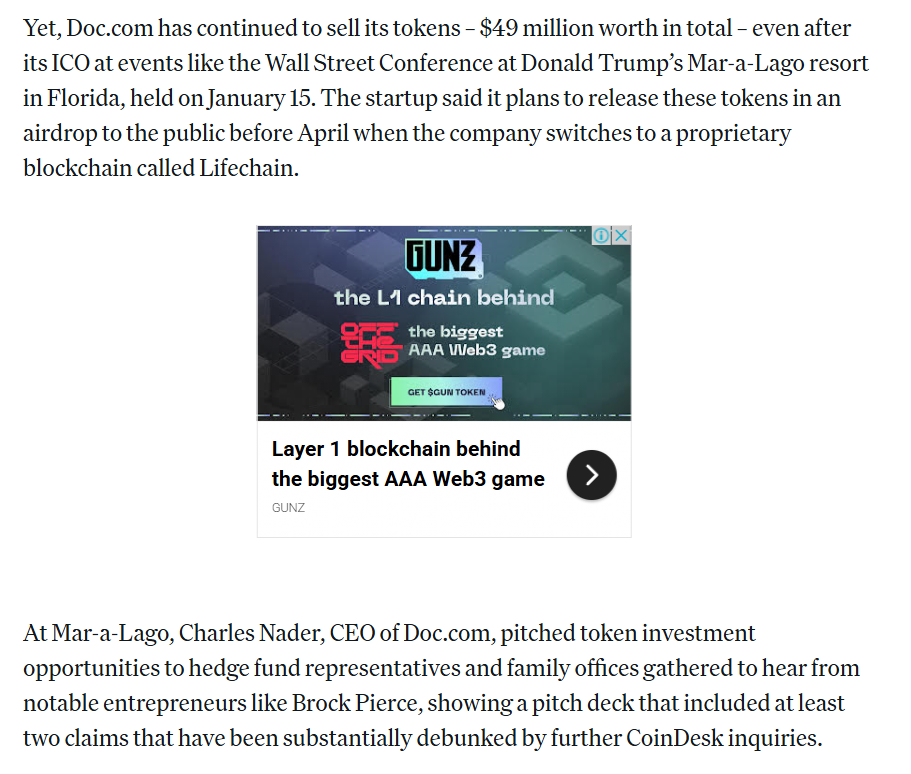
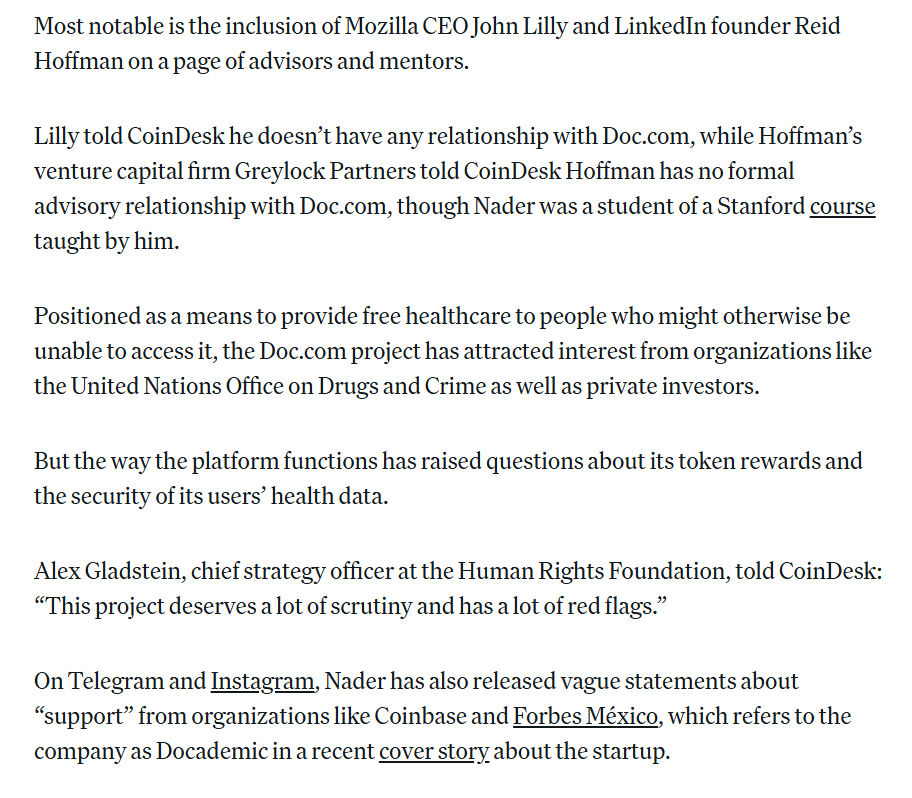
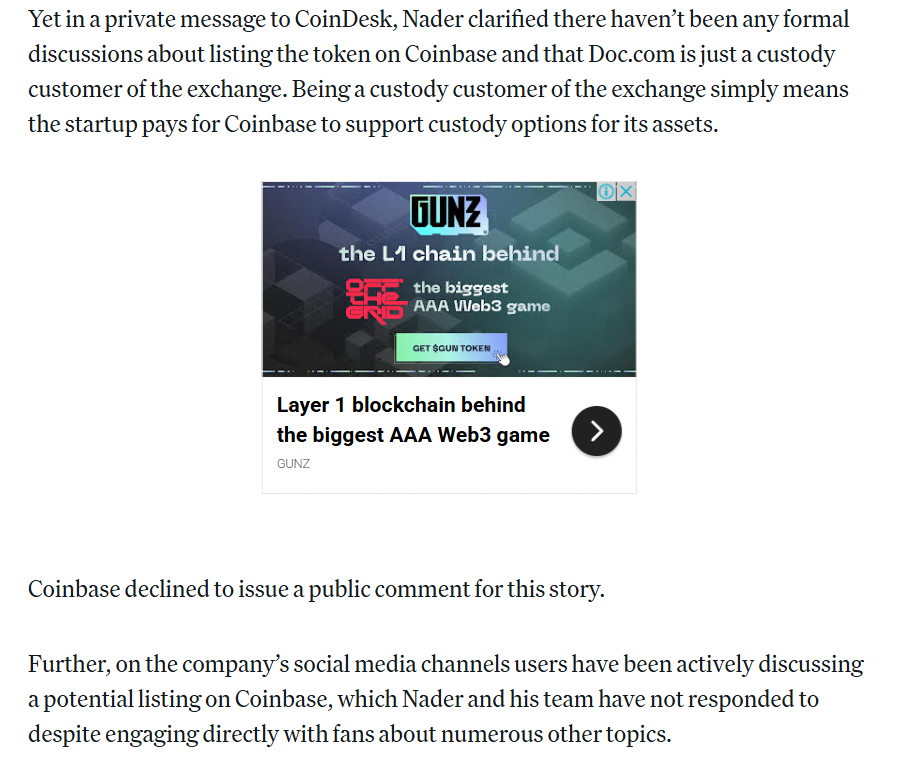
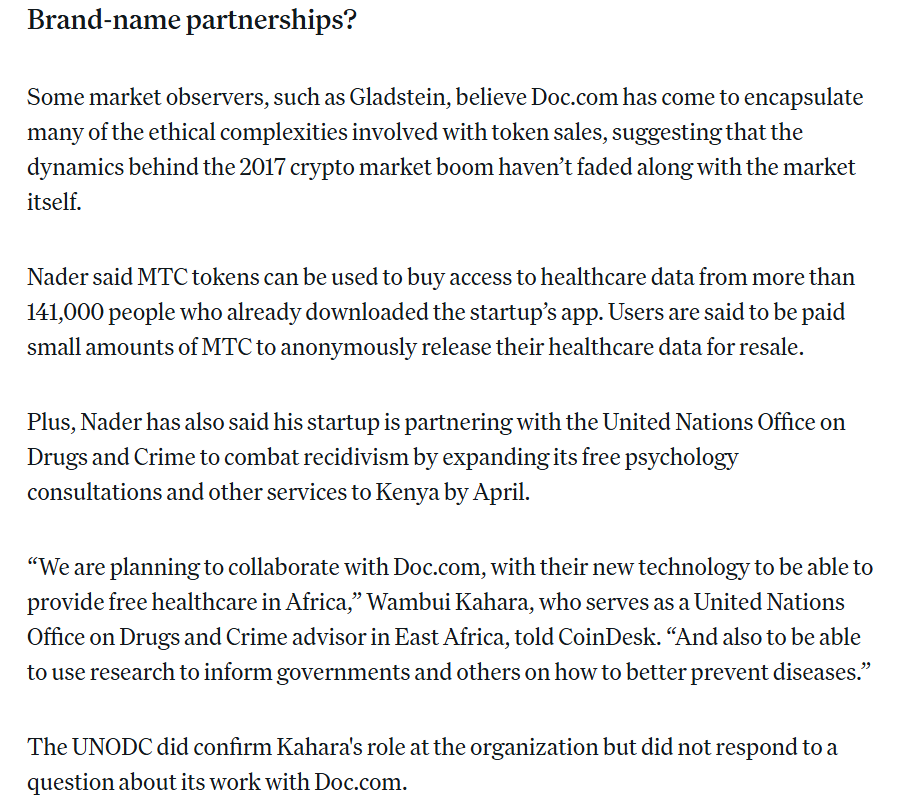
1 Alerts on Charles Nader
- RED FLAGS
Charles Nader: Doc.com Token Operations
Charles Nader, CEO of Doc.com, positioned his company as a revolutionary bridge between blockchain and global healthcare access. But investigations reveal inflated cla...
Visit LinkHow Was This Done?
The fake DMCA notices we found always use the ? back-dated article? technique. With this technique, the wrongful notice sender (or copier) creates a copy of a ? true original? article and back-dates it, creating a ? fake original? article (a copy of the true original) that, at first glance, appears to have been published before the true original.


What Happens Next?
The fake DMCA notices we found always use the ? back-dated article? technique. With this technique, the wrongful notice sender (or copier) creates a copy of a ? true original? article and back-dates it, creating a ? fake original? article (a copy of the true original) that, at first glance, appears to have been published before the true original.
01
Inform Google about the fake DMCA scam
Report the fraudulent DMCA takedown to Google, including any supporting evidence. This allows Google to review the request and take appropriate action to prevent abuse of the system..
02
Share findings with journalists and media
Distribute the findings to journalists and media outlets to raise public awareness. Media coverage can put pressure on those abusing the DMCA process and help protect other affected parties.
03
Inform Lumen Database
Submit the details of the fake DMCA notice to the Lumen Database to ensure the case is publicly documented. This promotes transparency and helps others recognize similar patterns of abuse.
04
File counter notice to reinstate articles
Submit a counter notice to Google or the relevant platform to restore any wrongfully removed articles. Ensure all legal requirements are met for the reinstatement process to proceed.
05
Increase exposure to critical articles
Re-share or promote the affected articles to recover visibility. Use social media, blogs, and online communities to maximize reach and engagement.
06
Expand investigation to identify similar fake DMCAs
Widen the scope of the investigation to uncover additional instances of fake DMCA notices. Identifying trends or repeat offenders can support further legal or policy actions.

Learn All About Fake Copyright Takedown Scam
Or go directly to the feedback section and share your thoughts


Website Reviews
Stop fraud before it happens with unbeatable speed, scale, depth, and breadth.
Recent Reviews

Cyber Investigation
Uncover hidden digital threats and secure your assets with our expert cyber investigation services.
Recent Reviews

Threat Alerts
Stay ahead of cyber threats with our daily list of the latest alerts and vulnerabilities.
Recent Reviews

Client Dashboard
Your trusted source for breaking news and insights on cybercrime and digital security trends.
Recent Reviews
Payomatix
Fake DMCA Investigation
Ruchi Rathor
Fake DMCA Investigation
Gamsgo
Fake DMCA Investigation
User Reviews
Discover what real users think about our service through their honest and unfiltered reviews.
1.7
Average Ratings
Based on 3 Ratings
Aiden Carter
I’m unnerved by how Charles Nader pitched Doc.com as a healthcare revolution, yet all signs show his real focus was pushing the Medical Token Currency. Marketing hype seemed prioritized over patient care, leaving credibility hanging in the balance. His claims...
12
12
James Hilti
Nice hit piece guys 😂. I hope you were paid well for this Charles is a good man and he will succeed in bringing his vision to the public.
12
12
Aaron Hamilton
Doc.com’s venture into crypto healthcare shouldn’t have been about the MTC token it should’ve been about patient safety and data privacy. But Nader’s focus on raising funds through aggressive token sales speaks volumes about his priorities: personal gain over the...
12
12
Hazel Rogers
Charles Nader’s tactic of overstating Doc.com’s affiliations with big names like Coinbase is textbook misrepresentation. In an industry already tainted by ICO frauds, this was one more step toward convincing investors that a mirage was a reality. Too bad the...
12
12
Thomas Payne
When your healthcare company spends more time hyping its cryptocurrency than improving patient care, it’s hard to call yourself a pioneer. Nader’s ICO strategy reeks of self-interest, pushing the boundaries of ethical fundraising while neglecting the very services he claims...
12
12
Bella Stevens
Doc.com’s ICO might’ve raised millions, but it also raised serious questions about Nader’s approach to fundraising. Selling tokens after an ICO is a blatant cash grab, not a strategy for growth. This isn’t innovation it’s exploitation wrapped in crypto promises.
12
12
Bella Stevens
Nader’s idea of “transparency” seems to involve carefully crafted pitches, embellished partnerships, and a disregard for investor clarity. With overstated affiliations and a “raise first, explain later” mentality, he’s the kind of CEO who'd rather mislead than disclose. Investors, beware.
12
12
Anthony Knight
Charles Nader's Mar-a-Lago pitch wasn't about healthcare it was about lining his pockets with crypto hype. If Doc.com’s focus on tokens over patient care doesn’t raise red flags, the exaggerated claims of industry affiliations sure should. The real question: was...
12
12
Helena Kowalska
Claiming to empower vulnerable communities while using their medical data as a revenue stream is the corporate equivalent of smiling while picking someone’s pocket.
12
12
Tobias Richter
Doc.com doesn’t just bend the truth; it fractures it into a thousand misleading fragments and tosses them into flashy marketing decks.
12
12
You are Never Alone in Your Fight
Generate public support against the ones who wronged you!
Featured Cyber Investigations
Explore our most impactful cyber investigations, where we uncover coordinated digital deception, expose fraudulent takedown schemes, and reveal the hidden mechanics behind online manipulation.
Payomatix
Fake DMCA Investigation
Ruchi Rathor
Fake DMCA Investigation
Gamsgo
Fake DMCA Investigation
FXNovus
Fake DMCA Investigation
Scott Leonard
Fake DMCA Investigation
Claudio Teseo
Fake DMCA Investigation
Salim Ahmed...
Fake DMCA Investigation
KTV Group...
Fake DMCA Investigation